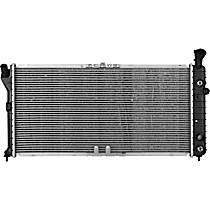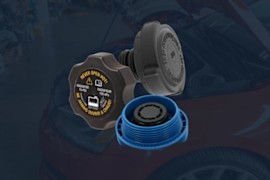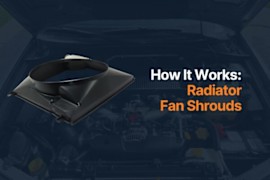{
"lazyNodes": false,
"abFitnotesFlag": false,
"abCrawlReviews": false,
"productOptionsCookie": false,
"orderDelayFlag": false,
"skipSessionCookie": false,
"covidMessage": false,
"fullTitleCookie": false,
"nrLoggerCookie": false,
"checkoutReviewCookie": false,
"productOptionSeqCookie": false,
"maintenanceFlag": false,
"bufferETACookie": false,
"multiShippingDiscountFlag": false,
"newFitmentFlag": false,
"surveyOptInFlag": false,
"crossSellFlag": false,
"skuMappingFlag": false,
"paySplitCookie": false,
"callDisableFlag": false,
"zipPaymentFlag": "u",
"hassleFreeReturn": false,
"lifetimeReplacement": false,
"cpn_off": false
}Cadillac Catera Radiators
Shop Catalog
![]() WARNING: This product can expose you to chemical which is known to the State of California to cause cancer and birth defects or other reproductive harm. For more information go to www.P65Warnings.ca.gov.
WARNING: This product can expose you to chemical which is known to the State of California to cause cancer and birth defects or other reproductive harm. For more information go to www.P65Warnings.ca.gov.
![]() WARNING: This product can expose you to chemical which is known to the State of California to cause cancer and birth defects or other reproductive harm. For more information go to www.P65Warnings.ca.gov.
WARNING: This product can expose you to chemical which is known to the State of California to cause cancer and birth defects or other reproductive harm. For more information go to www.P65Warnings.ca.gov.
Product Questions & Answers
Customer Guides
Common Issues of a Cadillac Catera Radiator
You probably won't have many problems with your Cadillac Catera radiator. Yes, there's the occasional leaking hose or two, but aside from that, you shouldn't have a lot to worry about as long as you put a bit of effort into your radiator's maintenance. If ever you do have problems with it though, the issues discussed below (which include the said leaking hose) are what you can expect.
Air inside the radiator
Air doesn't belong in your Cadillac Catera radiator. It doesn't have any business being inside your radiator since air can block the flow of coolant, which of course results into the diminished effectiveness of your cooling system. Unfortunately, air still finds a way to get in (this normally happens when servicing your radiator). The only solution to this problem is to bleed your radiator. Don't worry; the process shouldn't be too difficult especially if you're a seasoned DIYer.
Cracked hoses
If there's a puddle of coolant underneath your Catera, the radiator hoses are the most likely sources of it. Yes, there's a good chance that the leaking didn't originate from the radiator itself, which you should be thankful for since a leaking radiator is a far bigger hassle than cracked hoses.
Anyway, the non-stop flow of fluid through the radiator hoses makes them highly prone to wear and tear. With that in mind, it really isn't surprising if they eventually develop cracks. Even if the hoses are durable, leaking is pretty much inevitable at some point. Replace any cracked hoses as soon as possible to avoid wasting coolant and compromising your Catera's cooling system.
Leaking radiator
This is the worst thing that could happen to your Cadillac Catera radiator. As mentioned earlier, a leaking radiator is much worse than leaking hoses. It's because a leaking radiator requires considerably more money and effort to fix than the hoses. In fact, merely confirming if your radiator is indeed cracked will already give you a tough time since it's not easy to pinpoint the exact location of the damage.
One way you could do to fix this problem is by patching the crack on your Cadillac Catera radiator. That sounds kind of simple but the actual process will give you a major headache. If that doesn't work, you'll be left with no choice but to replace the entire radiator. Hopefully, it won't come down to that.
Taking care of your radiator is essentially a part of your Cadillac Catera's engine maintenance. In fact, it goes a long way in keeping your engine healthy. With that said, below are some of the things you can do to preserve the effectiveness of your Cadillac Catera radiator.
Install new hoses when necessary.
Yes, the hoses on your Cadillac Catera radiator are durable. But despite that, wear and tear will eventually get to them. There's nothing you can do to stop it-it's pretty much inevitable, actually. Your only option when that happens is to replace the old hoses, which shouldn't be difficult to do if you're a seasoned DIYer. Doing so in a timely manner should prevent coolant leaks, and ultimately, engine overheating.
Replenish your supply of coolant from time to time.
A fresh batch of coolant from time to time will do your Cadillac Catera radiator good. Yes, coolant does get old, too. Being run through your radiator continually will eventually cause it to become worn. And worn coolant is simply not as effective as a fresh supply. Needless to say, this would lead to the constant overheating of your engine.
To make sure that your Cadillac Catera radiator runs optimally at all times, it's best to change the coolant every once in a while. The keyword here is change
, so don't merely top off your old supply. The right way to go about this is to completely drain your radiator first before pouring in anything. Also, mind the ratio of the coolant-water mixture. It's important that you've got the correct proportions so that your Catera won't run into any problems.
Don't disregard the radiator cap.
Radiator caps really don't need much attention. However, do give yours just that occasionally. Inspecting your radiator cap every now and then is important since you'll want to know when a replacement is necessary. You see, your cap can become dry and damaged over time. And when it does get to that point, the cap would no longer be able to carry out its function effectively. Your supply of coolant can (and most probably will) spill out of your Cadillac Catera radiator as a result. So yeah, don't disregard the radiator cap.







